Before majoring in Communication Studies and working towards the goal of becoming a teacher, I wanted to be a photographer. When I started community college, I took all the photography courses available and dreamt of traveling to foreign countries in my pursuit of becoming a successful war photographer. During that same period, I can also remember having an interest in owning my own business. I knew I wanted the business to revolve around art and build a community centered around accessibility. One day, whilst walking my dog, I landed on an idea! What if I open an art gym?
The idea was wild! It would be a center built around various mediums of art with a photography studio/darkroom, painting studio, digital media center, a large kitchen with multiple appliances, or even a podcast studio. This would be an accessible center, where individuals pay a monthly subscription to utilize the space and its materials. I thought it was a winner; however, I figured it would not be possible to accomplish this goal until I was older.
A few years later, I was catching up on one of my favorite YouTubers: Casey Neistat. In his video “368 The First Episode” Neistat introduces his viewers to his new business idea he’s launching with fellow creators Dan Mace and Sam Sheffer. The central idea for the business is building a space for fellow creators to congregate and work on their creations. I was shaken to my very core! I love Neistat and his mind-blowing creative endeavors, but dude… that was my idea; I just hadn’t acted on it. This made me think, maybe ideas are like people. If you don’t give them the right amount of attention, care, or support they deserve, they’re more than likely going to seek it elsewhere.
During our time as graduate students, we are constantly on the search for new, relatable, or contemporary topics to write about. For some of us, especially during our first semester, we might gravitate towards the safer topic or maybe the one we feel is inherently familiar. Perhaps in the back of our mind, however, we’re holding onto another topic – one not as established and maybe a bit on the wild side. Should we let these traits stand in the way of our possibilities? Our fears might cause us to believe that maybe our ideas are not scholarly, serious, or ambitious enough – that these trivial thoughts are mere amusements we fidget with while walking our dogs. The truth is, it’s in these mundane thoughts that some of our most brilliant and exciting ideas unfold. The real question is whether you decide to act on them.
I recently watched a TedTalk titled “Let Curiosity Lead” where speaker Yara Shahidi talks to her audience about our unique curiosities and how she has allowed her own to freely guide her ambitions as an actor, producer, and scholar. Rather than regulate our curious minds, Yara compels us to take advantage of our many interests and let those catapult us towards whatever aspirations we may have in life. In her TedTalk, Yara states:“But also, I’d go as far as to say all of us juggle multiple interests, passions, and jobs. Yet there comes a moment on our paths where we’re expected to get serious, to find out one thing, stick to it. We’re told that our multiple areas of interest that we are equally drawn to are incompatible. And hit with that all-too-familiar, ‘Are you sure about that?’(3:50)”
For the longest time, I thought I wasn’t grounded enough as a scholar – that I wasn’t being consistent with my interests. During my B.A. my term papers jumped from analyzing the rhetorical function of colors in the TV series The Handmaid’s Tale, to studying personal and academic rapport between teachers and students. Even during my M.A., I studied various topics like parasocial relationships, female comedians of color, or courtroom perceptions and the ethics of defense attorneys. It wasn’t so much that I became bored with the topics I chose, rather I hold a plethora of interests and never want to tie myself down to one distinct area of focus. I began to feel a bit spontaneous compared to some of my other cohort members who were honing their specialties in media, cultural, or organizational studies. What was I going to do when it came time to start working on my thesis?
If someone asked me what I was doing for my thesis, would I like my answer? I have a hard enough time telling people what Communication Studies is, let alone informing people what I do in life. In past seminars, I’ve had the privilege of learning from scholars like Kimberlé Crenshaw or Sara Ahmed about the significance of intersectionality. Understanding not just through our race, gender, or sexuality but also through our other intersecting identities (such as what roles we play). This helped my come to the understanding that each of our intersecting identities are integral to the telling of our story and who we are at this moment in time. If we shouldn’t regulate our interests, perhaps we shouldn’t set strict parameters around what we say we do.
“I mean, think about how many times we ask each other the question ‘what do you do?’ Which is really a proxy in my mind for a much more pressing question, ‘who are you right now?’ Because what we do is only a fraction of who we are. And this culture of heralding expertise means that are curiosities are often mislabeled as distractions (4:24).”
So, when it came time for my thesis, I chose a topic that projected who I am right now: someone who’s currently interested in writing about media studies and who has a thirst to get back to her old roots in photography. When it comes to what we want to write about as scholars, at the end of the day we should choose something that matters to who we are now; something that will never exhaust you; something that you want others to know about and find impactful.
If you are struggling with your topic, brainstorm by making a list of possible ideas. Allow your curiosities to flow freely and remove any fears of topics you think are insufficient. Sometimes, while making your list, you’ll find patterns throughout. If it seems that one idea or focus is being repeated or stands out more than others, it might be beneficial to pursue it as a topic. Remember, however, research topics are in continual motion and are influenced by our on-going research. Don’t be afraid of how your topic may alter over time; instead embrace this natural step of your topic’s developmental process. Remember, this is not the finish line for your ideas or interests; save these ideas for later application because even when we graduate from this institution, our identity as scholars isn’t removed from who we are. Rather, it remains by our side as a part of our intersectionality.
By Simone Mingua-Lopstain





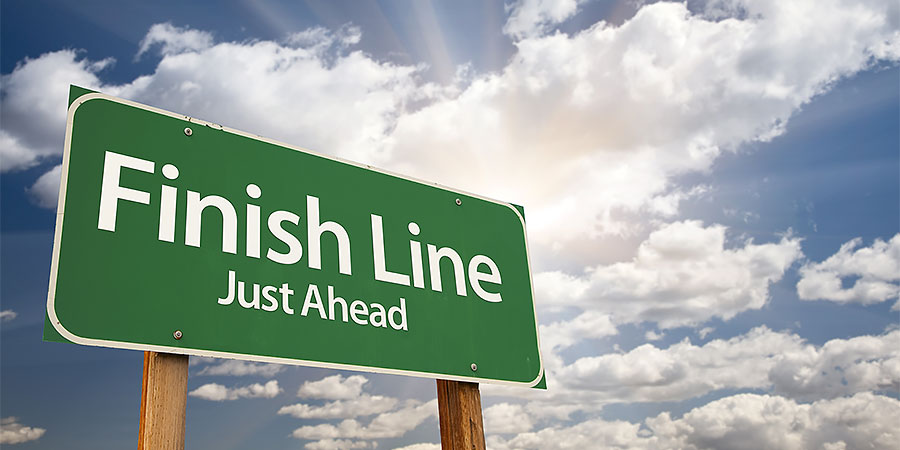

 draft. In Anne Lamott’s edifying essay Shitty First Drafts, she claims that “the first draft is the child’s draft, where you let it all pour out and let it romp all over the place, knowing that no one is going to see it and that you can shape it later” (22). I wholeheartedly agree; but how do we get to that place of play or freedom? The answer is not magical; there is no easy way to turn on the stream-of-consciousness-Kerouac-switch in our brains. The answer comes in the form of rigor, hard work, an unrelenting schedule, and draft after draft after draft until we have something that can be let loose into the intimidating world of scholarly works.
draft. In Anne Lamott’s edifying essay Shitty First Drafts, she claims that “the first draft is the child’s draft, where you let it all pour out and let it romp all over the place, knowing that no one is going to see it and that you can shape it later” (22). I wholeheartedly agree; but how do we get to that place of play or freedom? The answer is not magical; there is no easy way to turn on the stream-of-consciousness-Kerouac-switch in our brains. The answer comes in the form of rigor, hard work, an unrelenting schedule, and draft after draft after draft until we have something that can be let loose into the intimidating world of scholarly works.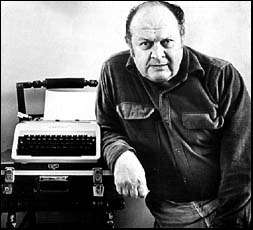 disappointing truth about the illusion of inspiration, he is also letting us know that, if we spend our time waiting, nothing will get done. With that being said, a poet should begin writing whether or not there is something to write about. A student/essayist, similarly, should be taking notes while reading source material. These actions motivate the writer to begin thinking about the content of their first draft in a way that is almost subconscious. But, thinking about adding one’s poems to the world of the great poets or contemplating that jump into the bigger academic conversation can be intimidating.
disappointing truth about the illusion of inspiration, he is also letting us know that, if we spend our time waiting, nothing will get done. With that being said, a poet should begin writing whether or not there is something to write about. A student/essayist, similarly, should be taking notes while reading source material. These actions motivate the writer to begin thinking about the content of their first draft in a way that is almost subconscious. But, thinking about adding one’s poems to the world of the great poets or contemplating that jump into the bigger academic conversation can be intimidating. any writer of any genre. First know your stuff and then, as Hugo would say, “get to work” (17).
any writer of any genre. First know your stuff and then, as Hugo would say, “get to work” (17).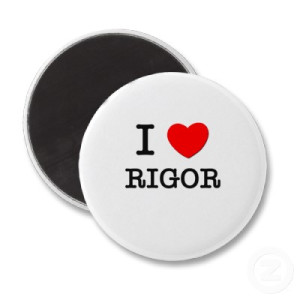




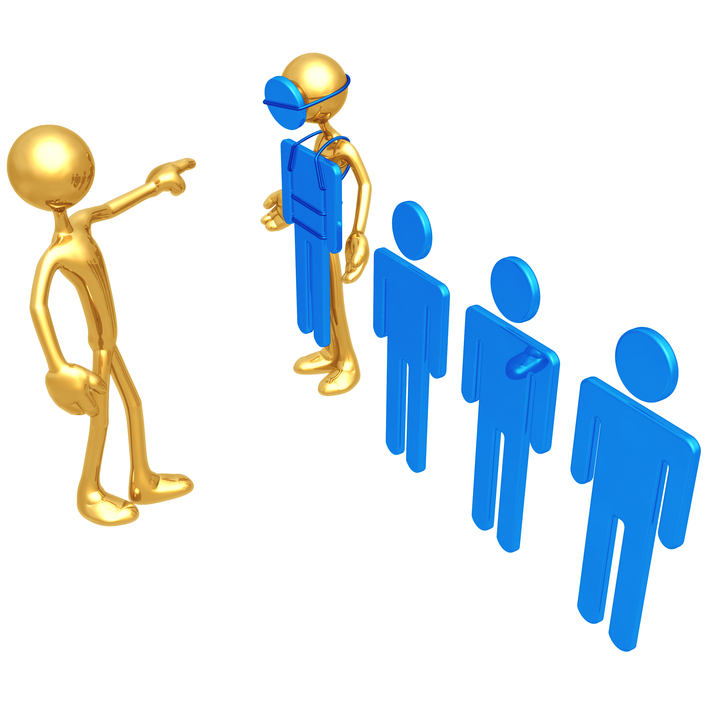



 We all know the feeling of coming back to another semester of grad school. Intense lectures and seminars, long hours of studying and preparing for exams, meeting after meeting with professors and advisors, and of course hours upon hours of writing. Simply put, life as a graduate student can be extremely demanding and at times, very overwhelming. For the most part, no matter the program you may find yourself in, the truth is you will be required to do lots of writing and eventually write a thesis, dissertation, or project. As a second year graduate student, I would like to share several tips on how to start the semester off strong, successfully make it to finals week, and eventually graduation.
We all know the feeling of coming back to another semester of grad school. Intense lectures and seminars, long hours of studying and preparing for exams, meeting after meeting with professors and advisors, and of course hours upon hours of writing. Simply put, life as a graduate student can be extremely demanding and at times, very overwhelming. For the most part, no matter the program you may find yourself in, the truth is you will be required to do lots of writing and eventually write a thesis, dissertation, or project. As a second year graduate student, I would like to share several tips on how to start the semester off strong, successfully make it to finals week, and eventually graduation.


 Giving yourself time to refresh is crucial to your success. It serves as a way to reward yourself for your hard work during the week, and motivate as well, by giving you something to look forward to.
Giving yourself time to refresh is crucial to your success. It serves as a way to reward yourself for your hard work during the week, and motivate as well, by giving you something to look forward to.
 It is important to educate our students on how to identify plagiarism, how to avoid it, and how to cite correctly. In fact, our librarians at California State University Fresno’s Henry Madden Library, offer workshops on “Avoiding Plagiarism” and our Grammar for Grad Students Series has also included a session on plagiarism.
It is important to educate our students on how to identify plagiarism, how to avoid it, and how to cite correctly. In fact, our librarians at California State University Fresno’s Henry Madden Library, offer workshops on “Avoiding Plagiarism” and our Grammar for Grad Students Series has also included a session on plagiarism. the ideas embodied in the research and know how to cite appropriately. This requires much more than substituting a word here and there or re-ordering a sentence. If a student has taken the time to research and understand the topic, they will be able to communicate the issues embodied in the topic in their own words.
the ideas embodied in the research and know how to cite appropriately. This requires much more than substituting a word here and there or re-ordering a sentence. If a student has taken the time to research and understand the topic, they will be able to communicate the issues embodied in the topic in their own words.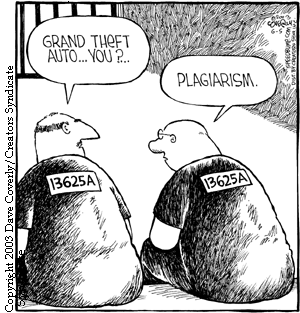

 searching their biological instincts to find a way to survive the experience. They also trust that, if they fail, they will be saved. Throw the student in, but be there to save them from drowning. Grammar, logical continuity, syntax, research, outlining, the drafting process, and other processes have been a part of every graduate student’s life at some point—this is their pool of water. They may not have the vocabulary to explain these things and they may not know how to explain the functions of language on the page—they may not know that they already know how to swim—but they have been exposed enough to paddle their way to safety.
searching their biological instincts to find a way to survive the experience. They also trust that, if they fail, they will be saved. Throw the student in, but be there to save them from drowning. Grammar, logical continuity, syntax, research, outlining, the drafting process, and other processes have been a part of every graduate student’s life at some point—this is their pool of water. They may not have the vocabulary to explain these things and they may not know how to explain the functions of language on the page—they may not know that they already know how to swim—but they have been exposed enough to paddle their way to safety. Students often get caught up in sounding scholarly. When encountering this, try to ask them, “How would you write this sentence?” Often, after they have let go of that Jiminy Cricket on their shoulder who is telling them that they need to write to a scholarly audience, they dismantle the facade and rewrite the sentence in their own authoritative voice. These students haven’t quite learned that they have already become the scholars and they definitely do not trust themselves. How do we show them how to trust themselves? We ask them to explain the subject in their own words. We should listen, ask, and then listen again. They have the tools and a constructivist approach would assume that they would find their way. A consultant should say “there is the pool,” throw them, in and be the “life jacket” in case the student flounders. Nine times out of 10, the student will find their way toward a clear, scholarly, voice that belongs to them.
Students often get caught up in sounding scholarly. When encountering this, try to ask them, “How would you write this sentence?” Often, after they have let go of that Jiminy Cricket on their shoulder who is telling them that they need to write to a scholarly audience, they dismantle the facade and rewrite the sentence in their own authoritative voice. These students haven’t quite learned that they have already become the scholars and they definitely do not trust themselves. How do we show them how to trust themselves? We ask them to explain the subject in their own words. We should listen, ask, and then listen again. They have the tools and a constructivist approach would assume that they would find their way. A consultant should say “there is the pool,” throw them, in and be the “life jacket” in case the student flounders. Nine times out of 10, the student will find their way toward a clear, scholarly, voice that belongs to them.